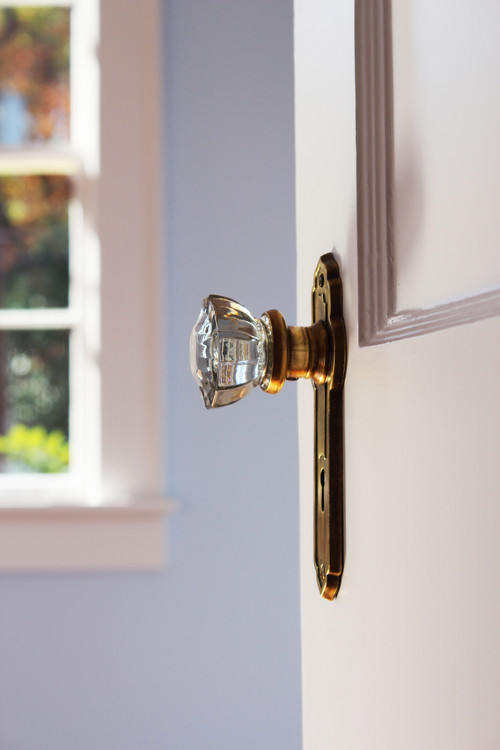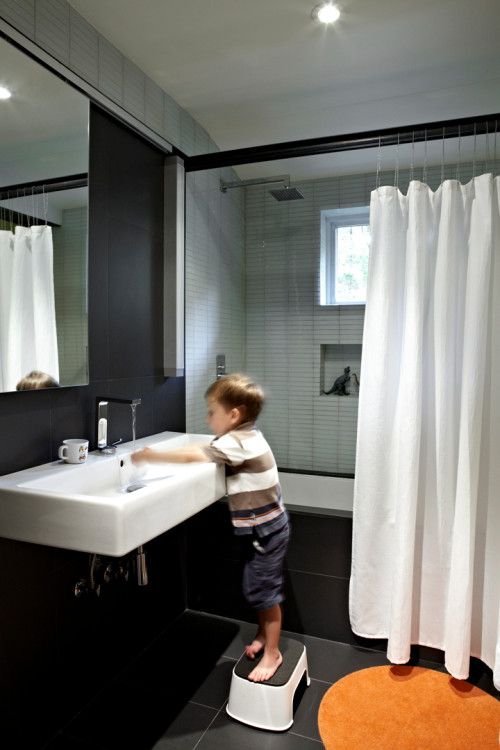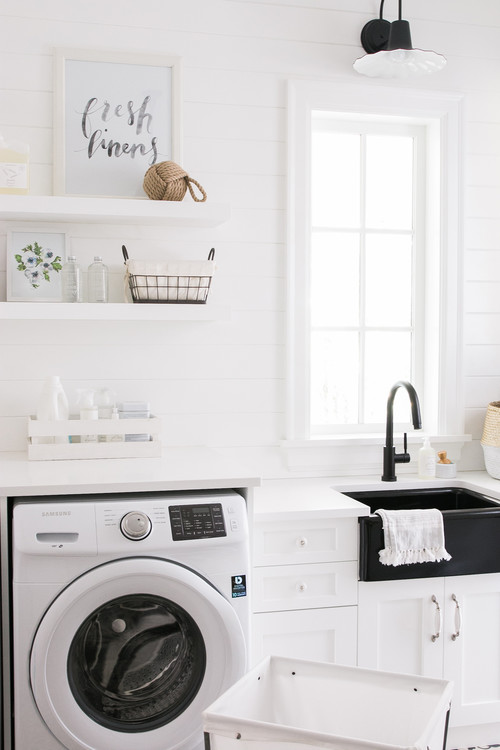Follow this CDC advice to make sure your kitchen, bathroom and other high-traffic areas are clean and disinfected
We want home to be a haven (especially during stressful times), and part of that, at a fundamental level, means living in a space that helps keep us healthy. According to the most current evidence from the Centers for Disease Control and Prevention, the virus that causes COVID-19 is spread primarily through close personal contact (within about 6 feet). So it’s more important to practice social distancing, not touch your face and wash your hands often and well than it is to be overly concerned about cleaning your house. And although the CDC has not found evidence of surface-to-person transmission to date (which is good news!), the virus may live on surfaces for hours to days, making regular cleaning and disinfecting a wise practice during this time.
Upgrade Hand-Washing Stations
The CDC recommends washing hands with soap and water for 20 seconds, especially after blowing your nose, coughing or sneezing; before eating or preparing food; and after using the bathroom. Stock up every sink in the house to make hand-washing easier and more sanitary with:
A bottle of liquid hand soap (anti-bacterial soap not needed)
Stacks of fresh hand towels and a hamper for dirty towels, or a roll of paper towels and a wastebasket
A container of sanitizing wipes for daily cleaning of faucets and counters
What About Hand Sanitizer?
You can use an alcohol-based hand sanitizer containing at least 60% alcohol when soap and water aren’t available. But if your hands are visibly dirty, the hand sanitizer will not be effective, and hand-washing is recommended.
Know the Difference Between Cleaning and Disinfecting
The important thing to remember is that cleaning should come first — if a surface is dirty, germs can be hiding below the dirt and grime, making disinfecting efforts less effective.
Cleaning removes dirt, grime and germs — this helps reduce the number of germs.
Disinfecting actually kills germs on surfaces using chemicals, which helps reduce the risk of spreading infection when done after cleaning.
Use the Right Products — and Follow Instructions
When it comes to cleaning, regular soap and water is all you need. But for the second step of disinfecting, it’s important to be sure you’re using the right product. EPA-registered disinfectants (see the current list here) approved to fight the novel coronavirus are what you want to look for. Already have rubbing alcohol or bleach in your cupboards? Either one will fight the COVID-19 virus. (A word of caution on using bleach to clean surfaces: It can discolor laminate and may damage the seal on granite and other stone countertops over time.)
If surfaces are dirty, remember to clean with soap and water first.
To prepare a bleach solution, mix 5 tablespoons (⅓ cup) bleach per gallon of water, or 4 teaspoons bleach per quart of water. Never mix household bleach with ammonia or any other cleaners.
If using rubbing alcohol, choose an alcohol solution containing at least 70% alcohol.
Check expiration dates. Do not use expired products, as they may not be effective against the COVID-19 virus.
Follow label instructions. Clorox has issued specific recommendations for preventing the spread of the COVID-19 virus, including leaving bleach solution on surfaces for five minutes.
Focus on High-Touch Surfaces
Cleaning and sanitizing the entire house would be overwhelming — and probably excessive. Instead, focus on the surfaces that get lots of contact throughout the day. These areas include doorknobs, light switches, tables, remote controls, handles, desks, toilets and sinks. And if you have kids or housemates who play video games, include those video game controllers.
Start a Just-Got-Home Routine
Put your belongings down in one spot, paying attention to what you carried with you throughout the day — likely suspects include your phone, key ring and sunglasses. Wash your hands for 20 seconds, then wipe personal items with an EPA-registered disinfecting wipe and leave to dry. When cleaning electronics, keep liquids away from openings, never submerge devices, and be especially gentle with touchscreens.
Help Kids Follow the Recommendations
If you have kids at home — especially if they’re not so keen on frequent hand-washing — consider one or more of these to make the ritual more fun:
Let your child pick out a fragrant hand soap, or put hand soap in a colorful container.
Tape the verse of a silly song to the mirror so they can sing for the recommended 20 seconds.
For younger children, cue up a song to sing along to on your phone.
Be sure a sturdy stool is positioned by every sink in the house to make the soap and water accessible.
Do the Laundry, Wash Your Hands
If you have a cloth laundry hamper liner, toss it in the wash when you do the laundry. Wash laundry on the warmest setting your clothes and linens can handle, and avoid shaking dirty laundry, which can spread virus through the air. And when you’re done handling dirty clothes and towels, be sure to wash your hands.
If Someone Is Sick, Take Extra Care
If you or someone in your house may be sick, you’ll need to take more precautions. Check the CDC’s recommendations for household members and caregivers on its website. A few of the most important precautions include isolating the sick person in their own room and bathroom, not sharing personal household items, handling their laundry with gloves (and washing your hands afterward) and cleaning high-touch surfaces daily.
Other household items you should consider disinfecting
Your computer keyboard and mouse
Google Home and Amazon Echo speakers
TV remote and TV buttons
All frequently used electronics, like tablets and phones
Debit cards














